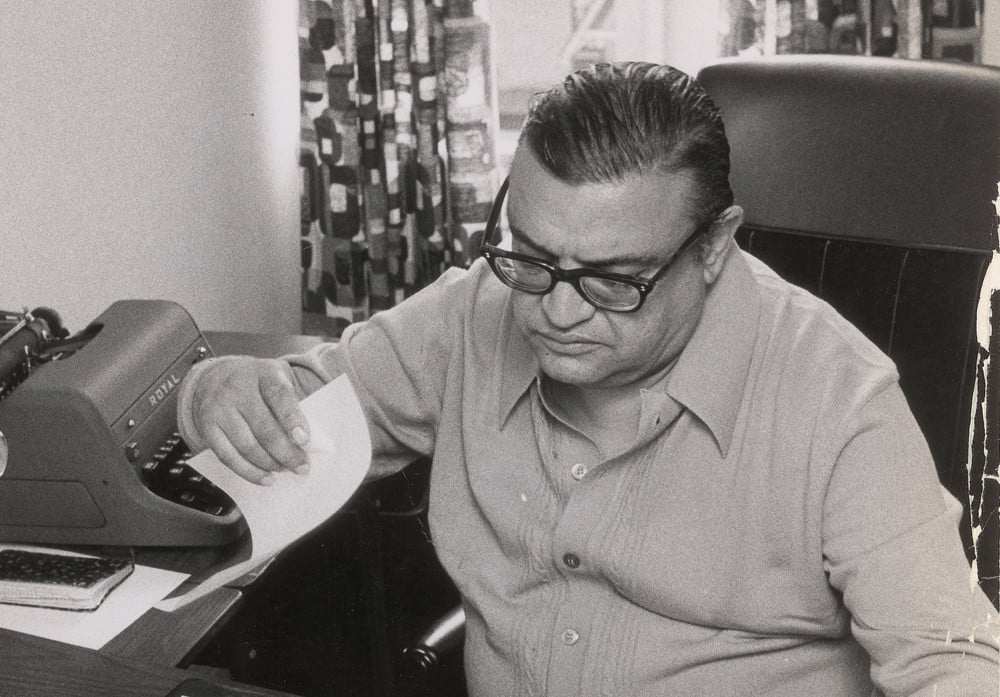
Materials related to The Godfather from Mario Puzo’s archive.
Photo: courtesy RR Auction.
It was an offer one buyer couldn’t refuse: 45 boxes of archival materials related to the classic book and film series The Godfather, snapped up for $625,000 at Boston’s RR Auction.
The archive is from the estate of the author and creator of the series, Mario Puzo, who died in 1999. His original 744-page typed working draft for the novel was included in the sale, which was part of the online Literary Rarities auction that ended February 18.
A photo of Mario Puzo, author of The Godfather, from his archive.
Photo: courtesy RR Auction.
Puzo’s handwritten notes and changes can be seen throughout the manuscript, which was originally titled Mafia. Puzo carefully planned out the complex novel, written in nine sections, on six large storyboards, also sold in the auction.
Important manuscripts such as these often make waves on the auction block. For instance, a first edition of J.R.R. Tolkien’s The Hobbit sold for $210,500 this past June, and one of Alan Turing’s scientific notebooks brought in over a million dollars at auction in April.
Studio notes on the script for The Godfather from Mario Puzo’s archive.
Photo: courtesy RR Auction.
All together, the Puzo archive contains thousands of pages, notes, and drafts from both the book and the subsequent films.
The novel was published in 1968, and Puzo was the screenwriter for the first and second Godfather films (1972 and 1974) by director Francis Ford Coppola. One of the archive’s nine partial copies of the script from the first movie includes a handwritten notes from Puzo on the now-iconic line “I’ll make him an offer he can’t refuse,” delivered in the film by actor Marlon Brando.
Materials related to The Godfather from Mario Puzo’s archive.
Photo: courtesy RR Auction.
The archive reveals Puzo’s process for developing the compelling characters, scenes, and dialogue that turned The Godfather into a cultural phenomenon that is still referenced regularly today.